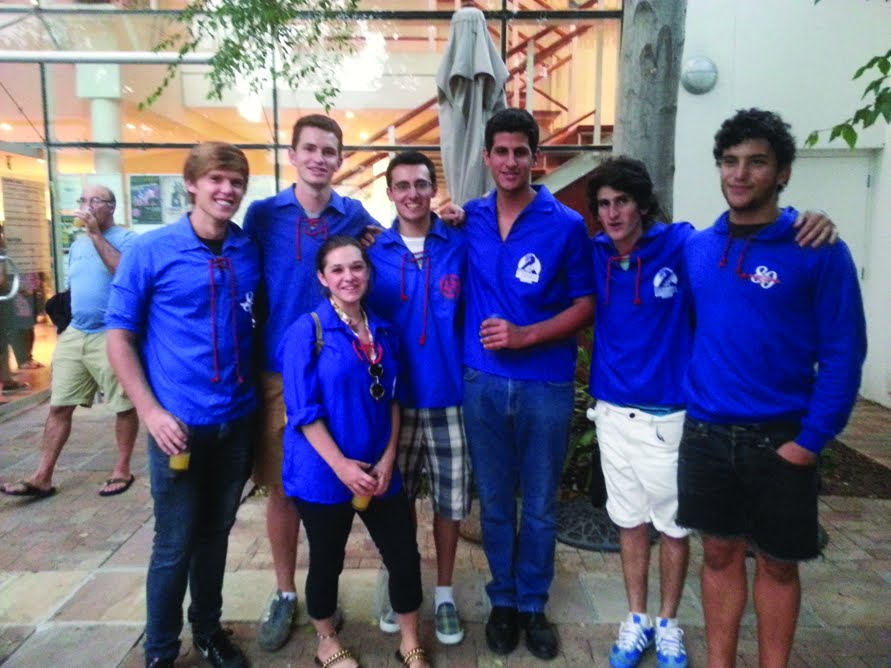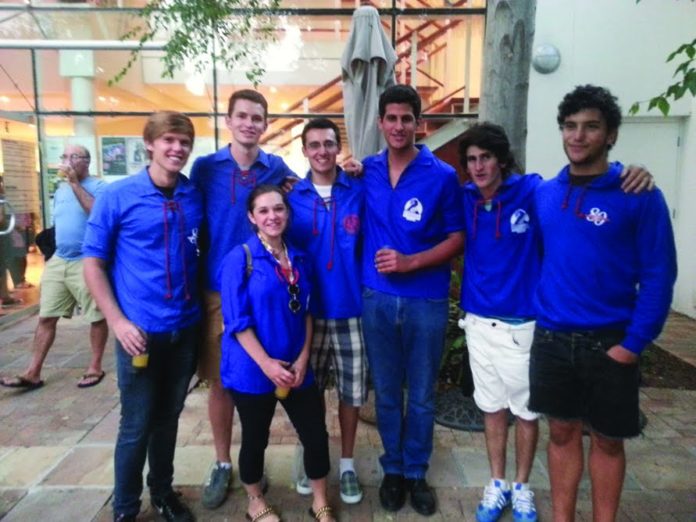 |
Haverim, a new comic documentary on the Israeli social protest movement, was screened at the Nelson Mandela Auditorium on 31 January.
The event was hosted by myself and Rebecca Hodes, and was supported by the Charles and Lynn Schusterman’s ‘Make it Happen SA’ initiative and the Cape South African Jewish Board of Deputies. This was a pilot project for the ‘Make it Happen SA’ initiative, which provides young Jewish South African innovators with a platform to engage as agents for social change. The screening was well- attended, with a unique and youthful audience reflecting a diverse range of voices from the Cape Town Jewish community.
A moderated discussion following the screening engaged with the gulf of ideological imperatives between Israelis and Diaspora Jews. The film was written and directed by Israeli film maker and social activist Regev Contes. It was launched at the Jerusalem Film Festival 2012. Contes had helped initiate the social protests of 2011, launched in Tel Aviv’s scenic Rothschild Square on 14 July, the anniversary of the French Revolution.
The film focuses on numerous individual members of this movement,including Contes’ own critical self-reflections; and a special focus Daphni Leef, who sparked a movement of young Israelis seeking socio-economic and political alternatives to the policies of their government. Using the Israeli anthem as its reference, the film reiterates the message of the J14 movement, when young secular Israelis standing in solidarity, posed the question to their government: Efo hatikva shelanu?
(Where is our hope?)
The power of public protest
I was moved to screen the film because for me, Contes is not only a film maker, but also an innovator for social change, which is what the ‘Make it Happen SA’ Initiative is all about. His representation of Daphni, and of the role of social protest in Israel provide a perspective not usually encountered in South African debates around Israeli politics.
After several months, the socio- economic and political fault lines of conflict between the ‘left’ and ‘right’ ultimately splintered the unity of the movement. Yet since that summer of 2011, with the launch of the watershed J14 movement, it seemed that Israelis had rediscovered the power of public protest, and its value for social change. During July 2011, Contes informed the press that “all problems at all levels are connected … we are all one social texture.” Spending part of the summer of 2012, I had become ever more aware of the spirit of protest on all sides of the ‘disappearing’ Green Line. The protests rallied around everything from the seemingly intractable Israel-Palestine conflict, to the treatment of Sudanese and Somali refugees, to the symbolic boycotts of the high price of rent, high taxation, West Bank produce, and even the price of cottage cheese.
On 22 June 2012, in an effort to revive the tent movement, Daphni Leef endured a violent arrest by policemen, which resulted in serious physical injury. On 7 January 2013 a decision was made by the state to indict Daphni with criminal charges for resisting arrest and ‘preventing an officer from conducting his duty’. The ongoing court case between the State of Israel and Daphni Leef demonstrates the legacy of the J14 movement.
It also provides room for South African Jews to re-evaluate the way in which we conceive of and distinguish between ideas of Jewish community and Jewish nationalism. The film screening and the event that followed was successful in providing an opportunity to explore how Israel sees itself and how a growing number of young secular Israelis seek to reshape their society from within.











